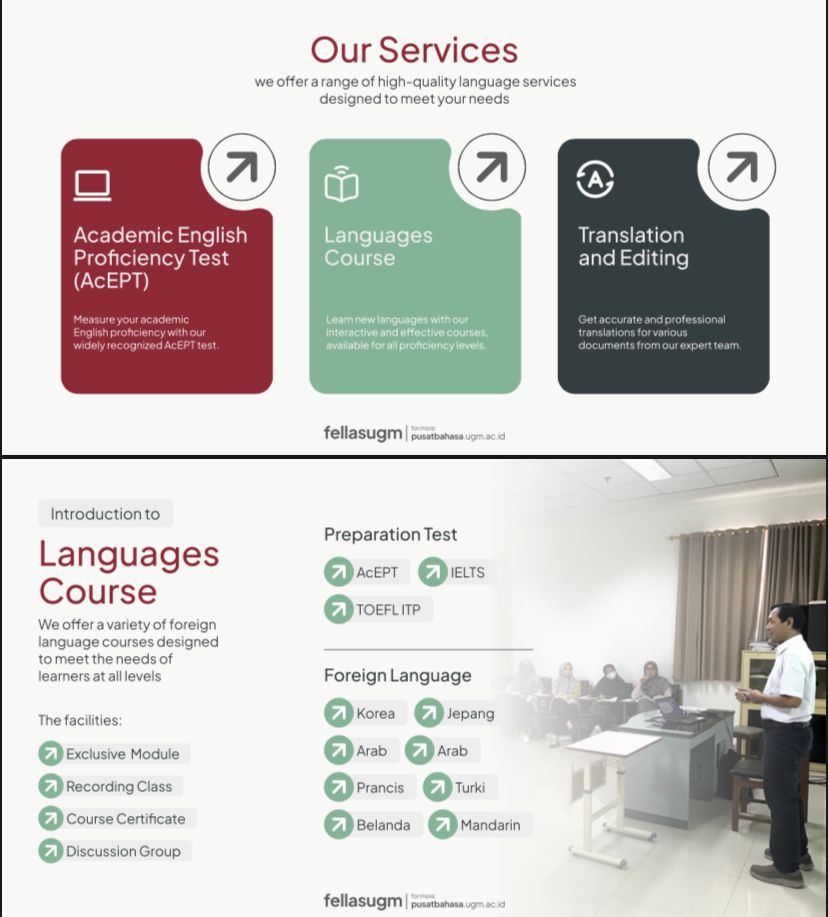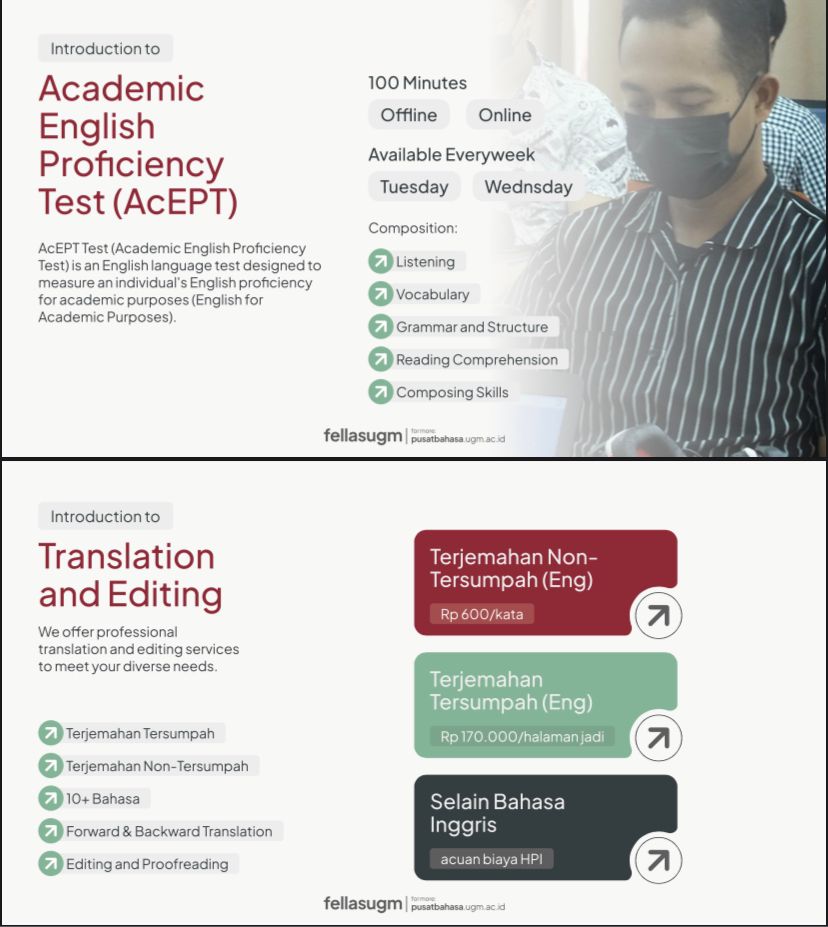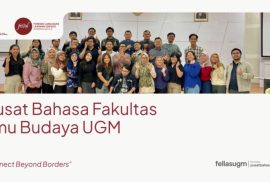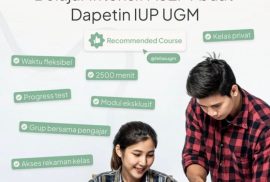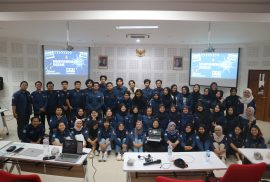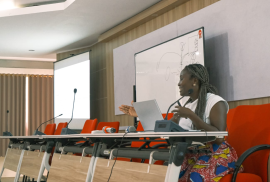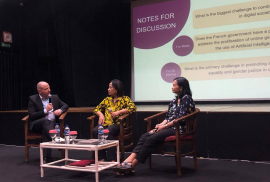The Language Training Center was established in 1971 under the auspices of the Faculty of Letters, Faculty of Cultural Sciences at the time, by the Rector of Universitas Gadjah Mada (UGM), Soeroso H. Prawirohardjojo. This institution was formed based on the awareness of the importance of foreign languages in the world of education and profession.
Before changing its name to Language Center, this institution was called SELTU (Staff English Language Training Unit). The name was created by Drs. Soegondo, Dean of the Faculty of Letters and the first coordinator of the Language Center, and Ken Moody from the British Council. However, SELTU does not only provide English courses, but also other foreign language courses. It is run under the supervision of the Ministry of Education in cooperation with the British Council.
In 1988, SELTU changed its name to Language Training Center and was under the auspices of the Graduate Faculty. This name change was based on the commitment of UGM Rector, Professor Koesnadi Hardjasoemantri (1985-l990) to expand the scope and streamline the language training offered by the university to UGM staff, non UGM staff, and the general public.
Currently, the Language Center is housed by the Faculty of Cultural Sciences. In global learning, the center is committed and focused on improving language skills and cultural understanding. This is in line with the 4th point of SDGs, namely Quality Education. In addition, by collaborating with other language institutions, such as the British Council, IDP, and so on, the Language Training Center realizes its commitment by implementing SDGs point 17, namely Partnerships to Achieve Goals.
